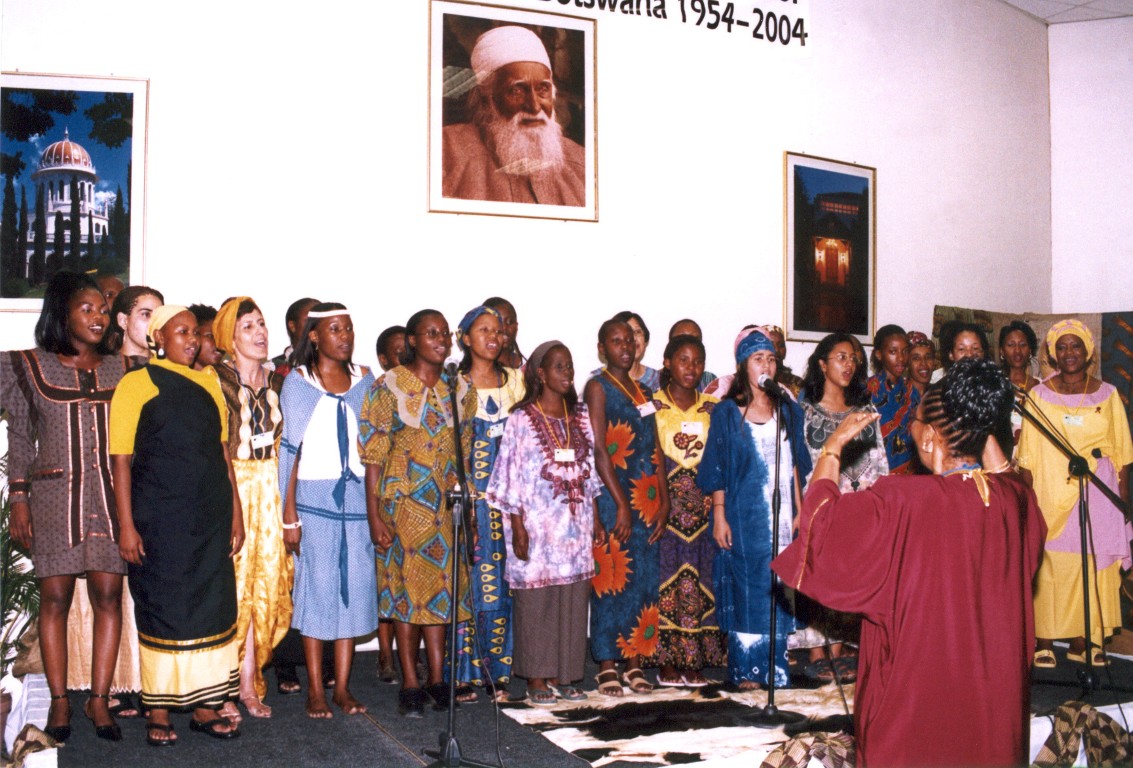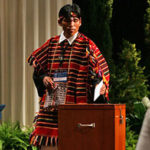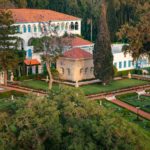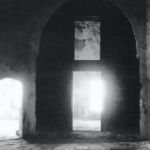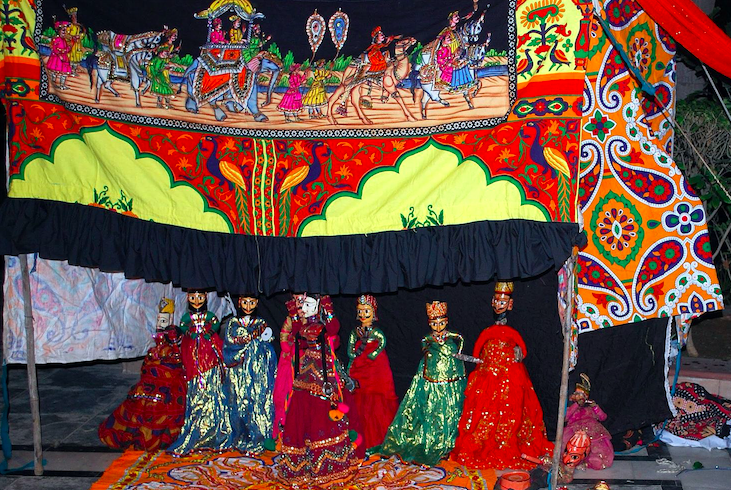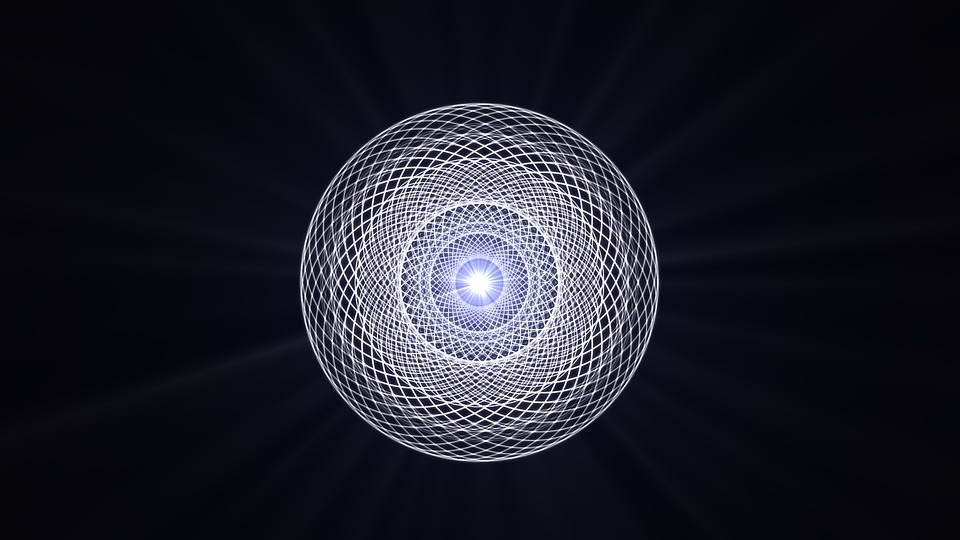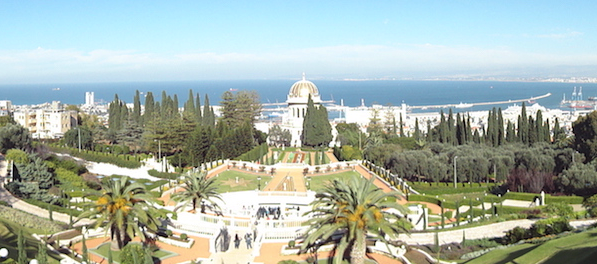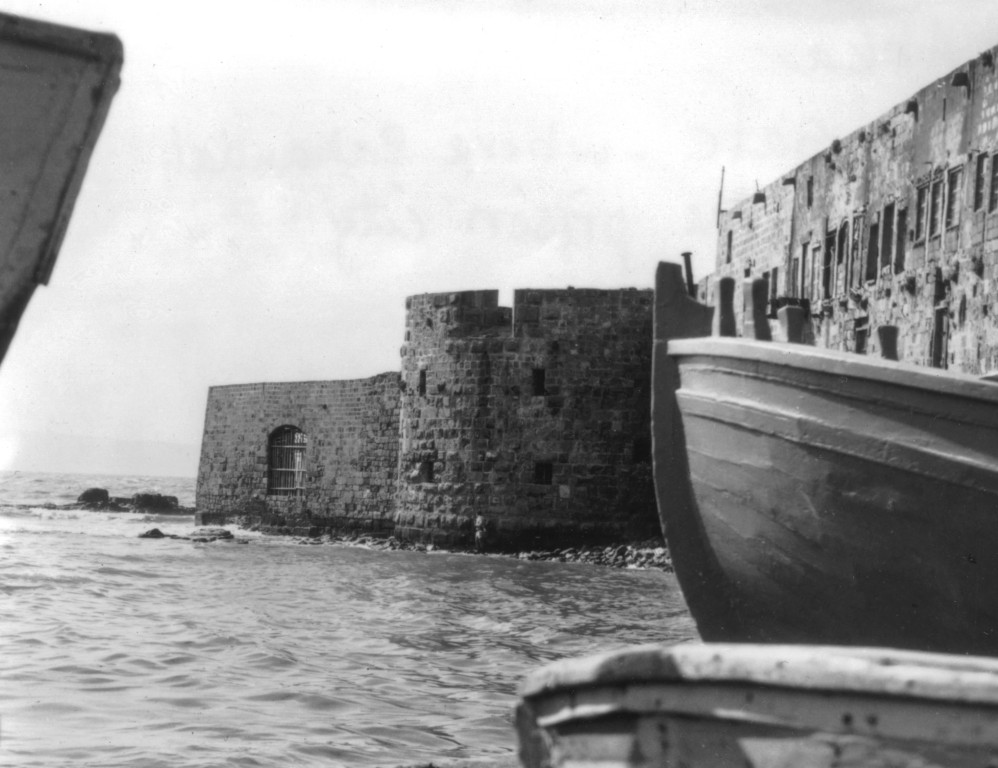
Baha’u’llah’s Will and Testament – the Kitab-i-Ahd

Bahá’u’lláh did something unique in the recorded history of the founders of world religions. He left a will and testament. His will and testament is from any viewpoint, a most remarkable document. It is a central constitutional document of the Baha’i Faith – yet at the same time it is a meditation on the human condition. Bahá’u’lláh calls its recipients to consciousness of the limitless human potential to which human beings can rise. Yet the text also warns of the dangers of human folly and institutes mechanisms to protect against them.
Known as the Book of the Covenant (Kitab-i-Ahd), the will and testament, written in Baha’u’llah’s own hand, was unsealed and read before nine witnesses nine days after Baha’u’llah’s passing. Later the same day, a large company gathered in Baha’u’llah’s shrine where it’s provisions were read again.[1]
The central principle of the Kitab-i-Ahd had actually already been set out in Baha’u’llah’s book of laws, the Kitab-i-Aqdas written in 1873.
When the ocean of My presence hath ebbed and the Book of My Revelation is ended, turn your faces toward Him Whom God hath purposed, Who hath branched from this Ancient Root.[2]
O people of the world! When the Mystic Dove will have winged its flight from its Sanctuary of Praise and sought its far-off goal, its hidden habitation, refer ye whatsoever ye understand not in the Book to Him Who hath branched from this mighty Stock.[3]
In his will and testament, referencing the Kitab-i-Aqdas, Baha’u’llah made clear that Abdu’l Baha was the person to whom the nascent Baha’i community should turn after his passing.[4]
To understand the significance of the existence of such a document and Abdu’l Baha’s appointment it is necessary to refer to religious history.
For example in the case of Christianity – there is no similar instrument appointing a successor. As a consequence, a limited measure of unity among Christians was only won over the course of centuries – and at great cost. Repeatedly new divisions arose – some of which have persisted to the present day. The most well known division in the Western European context is that between Protestants and Catholics – a division which cast Europe into generations of warfare. Only in recent years has the last Catholic-Protestant conflict (in Northern Island), finally been resolved. Even in the earliest days of Christianity sharp divisions arose – as is evident from a study of the New Testament.
Similarly in the case of Islam very soon after the passing of Muhammad, divisions broke out among his early followers. The result was that different branches of Muhammad’s family led opposing sides of a bitter civil war that was to change the course of Islam. The divisions that arose among Muhammad’s followers are still with us today contributing to untold suffering and violence.
These reflections are not intended as a criticism of other faiths, or individuals who lived long ago who sought to solve problems in the context they found themselves, and in the absence of clear directives from the founders of their faiths.
Yet, this history of human fallibility is tragic, and it is clear that Baha’u’llah’s purpose was to lay a foundation that would enable humanity to escape the many conflicts of the past. What was required was an instrument so clear that there could be no possibility of doubt as to what Baha’u’llah had directed. What was required was a bulwark against the human ego. This is what Baha’u’llah’s will and testament constitutes.
Baha’u’llah’s purpose is clearly stated in the will and testament itself:
The aim of this Wronged One in sustaining woes and tribulations, in revealing the Holy Verses and in demonstrating proofs hath been naught but to quench the flame of hate and enmity, that the horizon of the hearts of men may be illumined with the light of concord and attain real peace and tranquility.[5]
The extent of human potential, particularly in the unique circumstances of the present day, Baha’u’llah describes in the following words:
Lofty is the station of man! … Great and blessed is this Day—the Day in which all that lay latent in man hath been and will be made manifest. Lofty is the station of man, were he to hold fast to righteousness and truth and to remain firm and steadfast in the Cause. In the eyes of the All-Merciful a true man appeareth even as a firmament; its sun and moon are his sight and hearing, and his shining and resplendent character its stars. His is the loftiest station, and his influence educateth the world of being.[6]
Yet the depths to which human beings can fall is also set out:
… the fire of hate and enmity which smoldereth within the hearts and breasts of men.[7]
Human greed, and its dangers are also implicitly referenced:
Earthly treasures We have not bequeathed, nor have We added such cares as they entail. By God! In earthly riches fear is hidden and peril is concealed.[8]
Abdu’l Baha’s appointment as interpreter, noted above, prevents any class of theologian arising within the Baha’i Faith – and prevents “interpretation” being used as a vehicle for accumulating power or becoming a focus of dispute. It is coupled with a prohibition on interpretation which alters “the evident meaning” of Baha’u’llah’s writings.[9] Given this, personal opinions such as this article carry no authority. They are just an individual exploration – which may or may not be helpful.
Among other concepts we find in the Kitab-i-Ahd are the following:
“Say: all things are of God.” This exalted utterance is like unto water for quenching the fire of hate and enmity which smoldereth within the hearts and breasts of men.[10]
Conflict and contention are categorically forbidden in His Book. This is a decree of God in this Most Great Revelation. It is divinely preserved from annulment … [11]
He hath invested [kings] with the rulership of the earth and hath singled out the hearts of men as His Own domain … [12]
(Noting that elsewhere Baha’u’llah has expressed approval of both republicanism and constitutional monarchy (i.e. here the issue seems to be a prohibition of violent revolution or civil insurrection)).
O ye that dwell on earth! The religion of God is for love and unity; make it not the cause of enmity or dissension.[13]
It is enjoined upon everyone to manifest love towards the Aghsán, [i.e. Baha’u’llah’s children] but God hath not granted them any right to the property of others.[14]
We further admonish you to serve all nations and to strive for the betterment of the world.[15]
These provisions combine together to protect against a variety of ways in which human folly might frustrate Baha’u’llah’s goal of fostering human well-being. Baha’u’llah concludes the Kitab-i-Ahd with the following words.
That which is conducive to the regeneration of the world and the salvation of the peoples and kindreds of the earth hath been sent down from the heaven of the utterance of Him Who is the Desire of the world. Give ye a hearing ear to the counsels of the Pen of Glory. Better is this for you than all that is on the earth. Unto this beareth witness My glorious and wondrous Book.[16]
(This article is the 56th in a series of what I hope will be 200 articles in 200 days for the 200th anniversary of the birth of Bahá’u’lláh. The anniversary is being celebrated around the world on 21 and 22 October 2017, The articles are simply my personal reflections on Bahá’u’lláh’s life and work. Any errors or inadequacies in these articles are solely my responsibility.)
Image Credits: The sea gate where Bahá’u’lláh and His companions were taken into the prison city of ‘Akká in 1868. http://media.bahai.org/detail/7385053 Copyright © Bahá’í International Community
